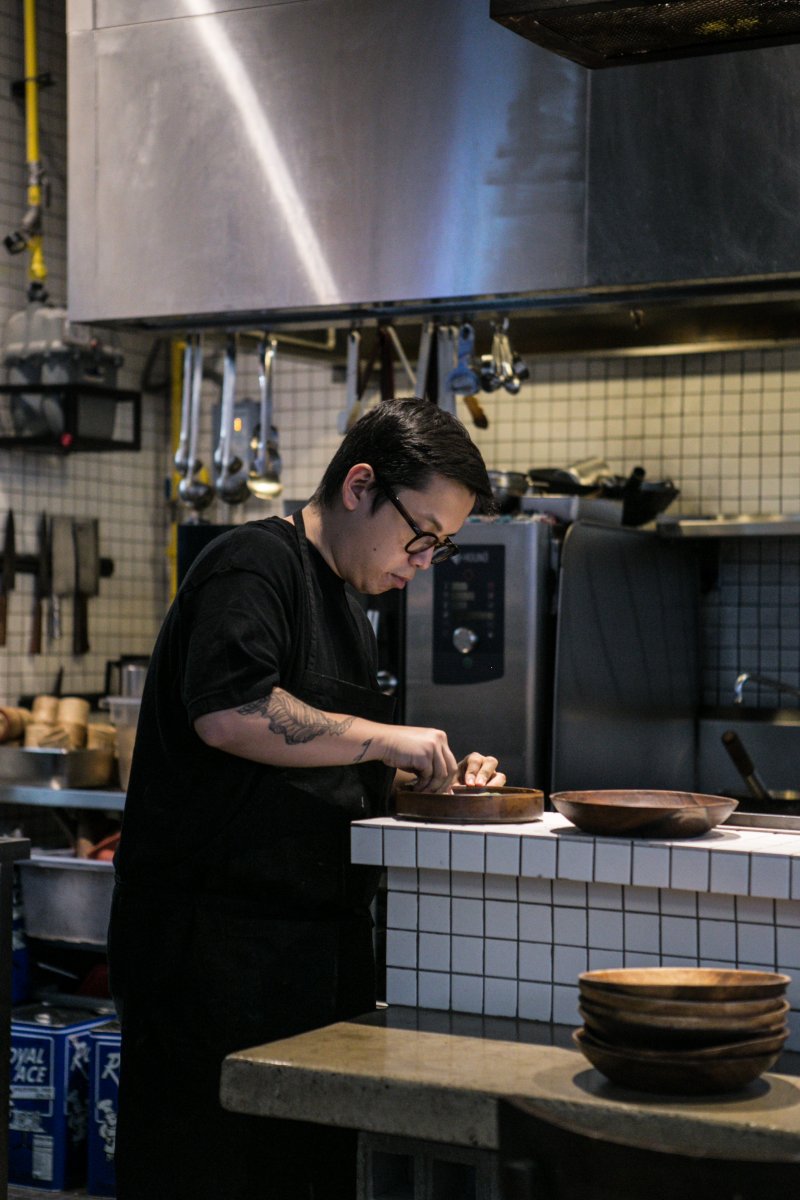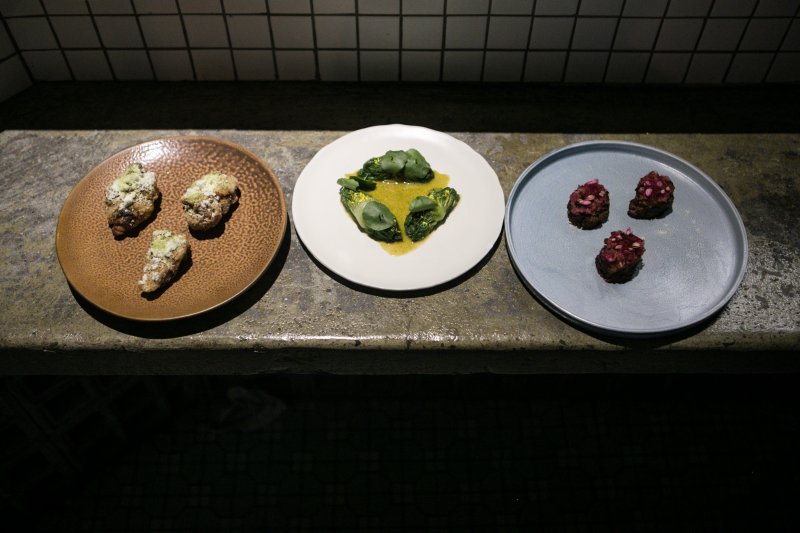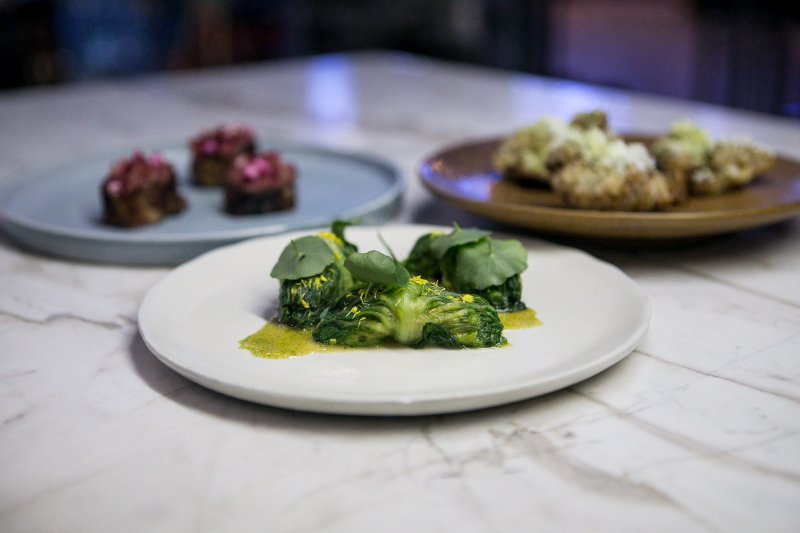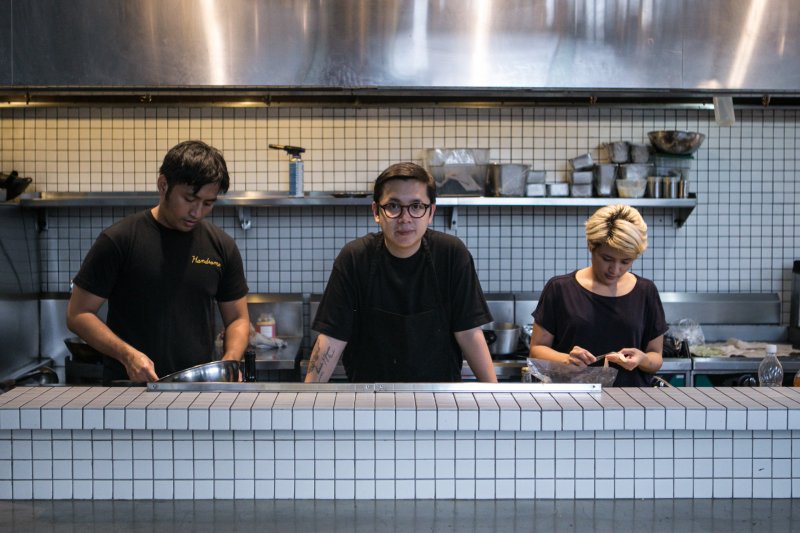When Nicco Santos interned at the American Hospitality Academy, he realized how messed up the industry is. “I worked in a restaurant where [cooks] shortcut everything, bully their staff—bullied me, threw food and cursed at me,” the Sambar owner says. He has also met potential business partners with twisted values. “Some people would tell me, ‘Let’s put up a restaurant.’ And when I ask about sourcing staff, they talk about it like it’s no big deal: ‘Just get the cheapest available.’
“How do you tell someone to wait tables like they own the place, to love what they’re doing, when the industry is used to paying them the most minimal it can?” he laments. “Why can’t they have medical assistance, allowance, and company-sponsored family meals?”

Santos says that he grew up an observer. His parents separated when he was still a baby and he was left to his grandmother to tend. As a teenager, he noticed the role of cooking in his life. “Whenever I see my mom, she’s always with chefs, the original gangsters of [the food and beverage industry]—Ed Quimson, Jessie Sincioco, Jill Sandique. And every time they were together, they’d cook and gather around,” he reminisces.
So he did the same for his high school friends from La Salle Greenhills. “Growing up without parents, I thought that if I cook, I can also gather people together,” he says. He cooked for them most weekends, and made them sandwiches so they wouldn’t eat anywhere anymore. The idea worked, and that was the beginning of his love story with cooking as a way to forge families.
What struck him most about his restaurants’ success is the reason patrons kept returning, aside from the food: his staff. Regulars once told Nicco Santos, “We come here because we want to talk to your bartender Jomar” or to his chef Quenee Vilar. He was taken aback.
Santos’ creation of beautiful Peranakan fare, his specialty, didn’t start until he was 25, until he called himself “complete with my past.” He had made peace with his parents and left his emotional baggage behind. “It was liberating. That’s when I started living and when Your Local happened.”
That’s also when Santos’ food started receiving overwhelming recognition, including a spot on “Condé Nast Traveler’s” “The Best Restaurants in the World” list. But what struck him most about his restaurants’ success is the reason patrons kept returning, aside from the food: his staff. Regulars once told Santos, “We come here because we want to talk to your bartender Jomar” or to his chef Quenee Vilar. He was taken aback. “All of a sudden, there’s a community forming. My staff are being recognized. Unknowingly, that’s what I started seeking,” he says.


“Being an observer growing up, these are the things I want to witness: my staff getting acknowledgement, growing, finding out what they’re capable of, and discovering how good they are.”
Who wouldn’t notice the warmth in his restaurant when he inculcates in his staff the importance of connecting with customers? “I tell them that our capability to uplift the diners’ mood is the beauty of our job,” he says. Santos himself isn’t afraid of sharing his thoughts and being transparent to his staff.
When someone says the food and beverage industry will always be cruel and the trade players just have to live with it, expect Nicco Santos to flip the bird, because he believes that it doesn’t have to be like that.
Yes, it gets painful. “Actually, the head chef of Hey Handsome just resigned.” Normally, his friends advised him to not be too attached anymore. “But that’s not fair to the next one. And to just boss my staff around is not the reason why I cook,” he argues.
Apparently, his investment in his staff, whom he considers family, has paid off. But Santos won’t stop pushing the people he works with until the majority of them become his partners in his company. As of now, two of them (former sous chefs Vilar and Mark Sanchez) hold equity.
When someone says the food and beverage industry will always be cruel and the trade players just have to live with it, expect Santos to flip the bird because he believes that it doesn’t have to be like that.
Originally published in F&B Report Vol. 15 No. 1





